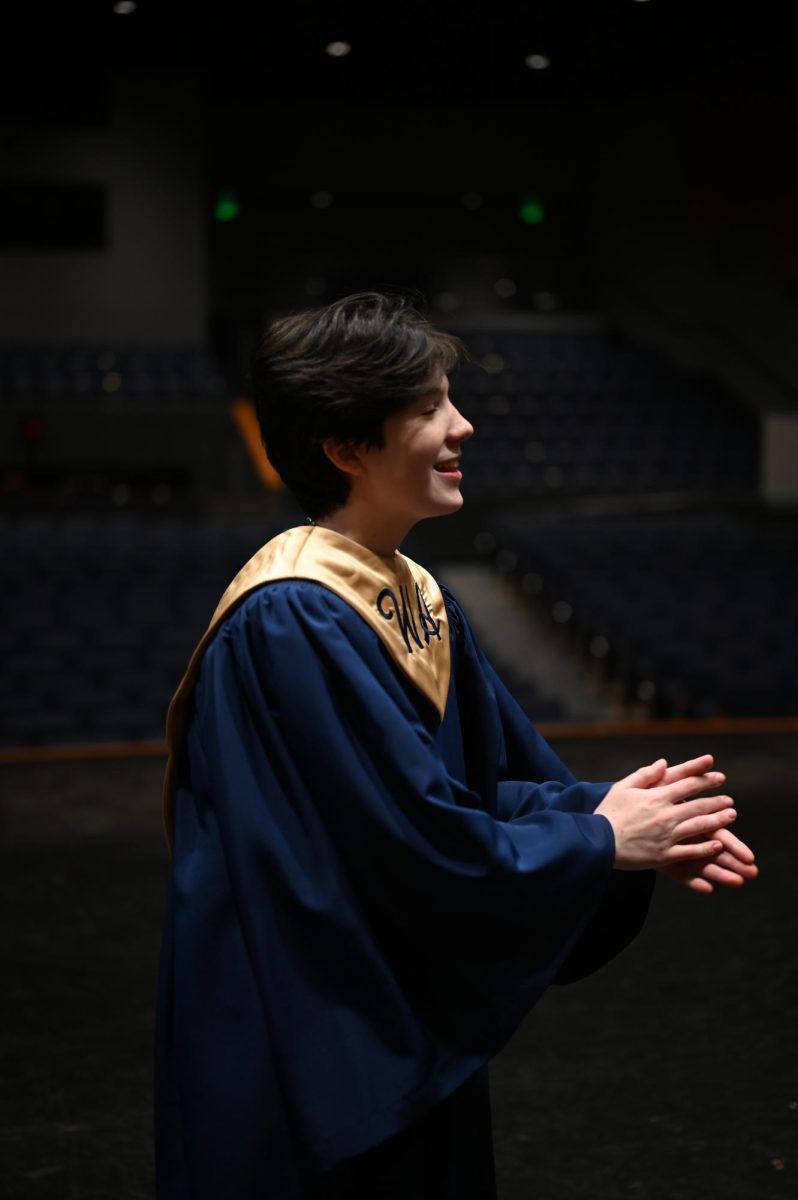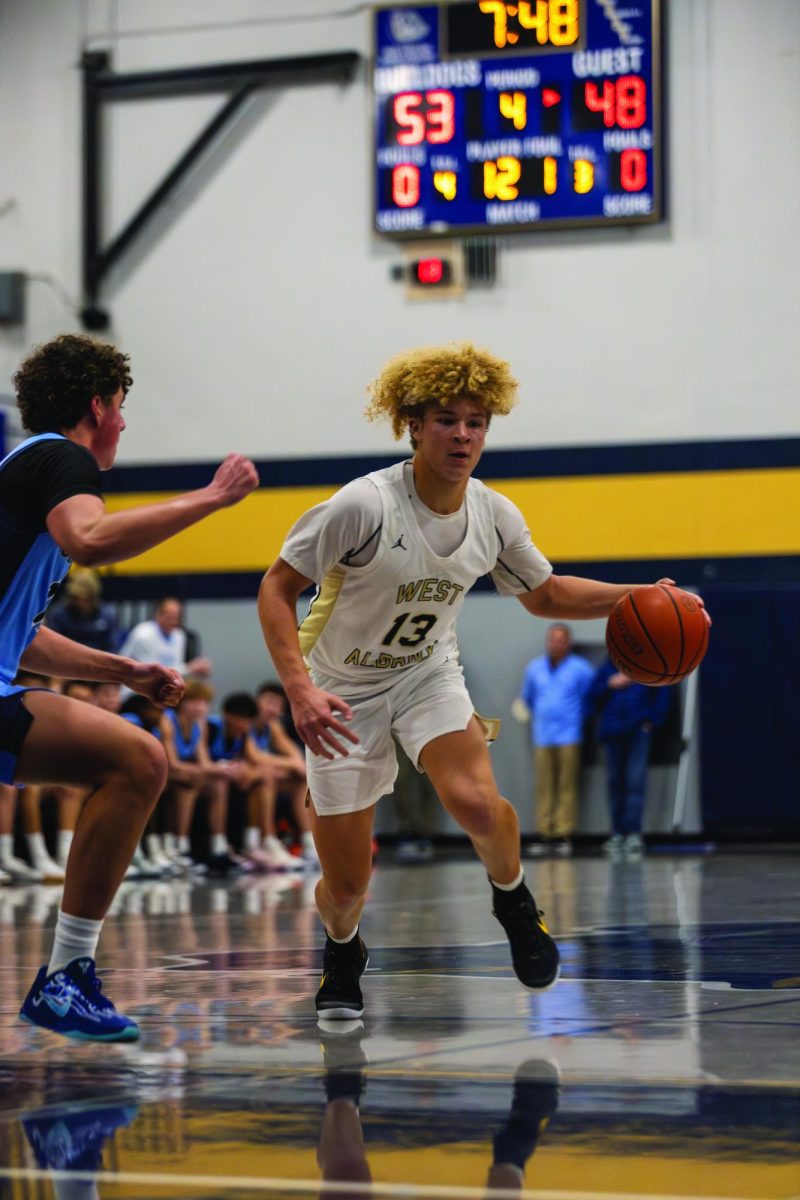The lights dim while the auditorium hums with anticipation as each member of the choir steps onto the stage, their steps echoing in the room. The air stands still as their director raises their hand, the air coming to a standstill before voices fill the room with beauty, painting it with colors that are invisible to the eye.
Before the performance, singers work on various things to make progress in their music, including breath support and control, phrasing through musical lines, and stressing different words. To some, the work leading up to the performance can be overwhelming.
“You’re taking everything you’ve ever learned, and now you’re putting it together, and you have to remember all that with the pieces. So it can be a little stressful, especially with other people,” junior August Slamp said.
During rehearsal, the Choir and Theater Director, Cate Caffarella, spends time ensuring that parts are taught during rehearsals, and she suggests that students focus on sectionals outside of class, leading up to performances to improve musicality.
“She kind of lights a fire under our butt to get us moving and drive home that we need to be practicing in small groups outside of class,” senior Noah Mortensen said.
Caffarella tries to make each performance the best it can be, but due to the focus needed for the singers, the process can be draining for some.
“Caffarella gets nitpicky, which is good and is part of the process, but it’s really hard to be told the same things over and over again,” sophomore Caelyn Rose said.
According to the National Institutes of Health, repetition is statistically proven to benefit memory and understanding. However, some students in their sections find it hard to maintain focus during rehearsal.
“It can be kind of frustrating when we have people that don’t take it as seriously,” Slamp said. “Just getting your section to pay attention and keep in mind the things we were already taught [is hard].”
Maintaining high levels of focus can be challenging for some during rehearsal, but Caffarella frequently suggests students utilize sectional time as a way to practice the music.
“Sectionalizing is useful for making sure that everyone in the same part is together. Because if there’s just one person who’s a little late, it’s not nearly as powerful,” Mortensen said.
Although the lead-up to festival season can be stressful for some, and rehearsals can get repetitive, the performance itself is enjoyable and an interesting learning experience for some performers.
“You can learn so much from different groups,” Slamp said. “The sound that other people create in those competition spaces is so cool because you know they’ve been working hard.”
The ability to perform in front of other groups allows them to influence other choirs like they look up to other groups.
“I wear [my uniform] as a badge of honor; being on stage with my peers in our uniforms is really special to me because it feels like we’re a unified group and that we’re doing something special,” Rose said.




